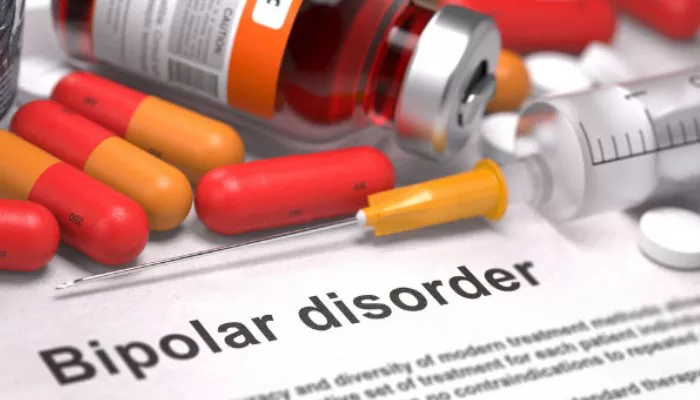Bipolar disorder is a mental health condition characterized by extreme mood swings, including emotional highs (mania or hypomania) and lows (depression). Over the years, a significant number of celebrities have publicly shared their experiences with bipolar disorder, leading to increased awareness and discussion about the condition. This article explores why it appears that many celebrities have bipolar disorder, the impact of fame on mental health, and the importance of understanding and addressing this complex condition.
Bipolar Disorder
What is Bipolar Disorder?
Bipolar disorder is classified into several types, primarily Bipolar I and Bipolar II. Bipolar I involves severe manic episodes lasting at least seven days, often followed by depressive episodes. Bipolar II is characterized by a pattern of depressive episodes and hypomanic episodes, but without the full-blown manic episodes typical of Bipolar I.
Symptoms of Bipolar Disorder
The symptoms of bipolar disorder can vary significantly between individuals, but common signs include:
Manic Episodes: Increased energy, reduced need for sleep, racing thoughts, and impulsive behaviors.
Depressive Episodes: Feelings of sadness, hopelessness, fatigue, and loss of interest in activities.
Prevalence of Bipolar Disorder
Research suggests that bipolar disorder affects approximately 2.8% of adults in the United States. However, certain populations, including artists and creatives, may experience higher rates of the disorder.
The Celebrity Factor
Visibility and Openness
In recent years, numerous celebrities have come forward about their struggles with bipolar disorder, including well-known figures such as Demi Lovato, Kanye West, and Carrie Fisher. Their openness helps reduce stigma and encourages others to seek help.
The Nature of Fame
Fame often brings unique pressures and challenges, which can exacerbate mental health issues. Celebrities face intense scrutiny, high expectations, and often erratic schedules, all of which can contribute to the development or worsening of bipolar symptoms.
Creative Expression and Mental Health
Many artists, writers, and musicians have been linked to mental health conditions, including bipolar disorder. The relationship between creativity and mental illness has been a topic of research for decades. Some theories suggest that the intense emotions experienced during manic episodes can fuel creativity, while depressive episodes may lead to profound insights.
Why Are Celebrities Disproportionately Represented?
Genetic and Environmental Factors
Bipolar disorder has a genetic component, meaning individuals with a family history of the disorder are at a higher risk. However, environmental factors—such as stress, trauma, and lifestyle—also play crucial roles. The unique lifestyle of celebrities, characterized by constant travel, high pressure, and intense public scrutiny, can contribute to the onset or exacerbation of bipolar symptoms.
The Pressure of Perfection
The entertainment industry often promotes unrealistic standards of success and perfection. This pressure can lead to increased stress and anxiety, triggering or worsening mental health issues in individuals predisposed to bipolar disorder.
Substance Abuse and Bipolar Disorder
Substance abuse is another significant factor that can complicate the lives of celebrities with bipolar disorder. Many individuals turn to drugs or alcohol as a means of coping with their symptoms, which can lead to a cycle of worsening mental health. Research indicates that individuals with bipolar disorder are more likely to experience substance use disorders, which can further complicate treatment and recovery.
The Role of Social Media
Increased Awareness and Discussion
The rise of social media has allowed celebrities to share their experiences more openly, leading to greater awareness about bipolar disorder. Platforms like Instagram and Twitter enable public figures to discuss their mental health struggles, which can have a positive impact on fans and followers.
The Double-Edged Sword of Social Media
While social media can facilitate discussion, it can also contribute to the pressures faced by celebrities. The constant need for validation through likes and comments can exacerbate feelings of inadequacy, particularly for those with bipolar disorder. The rapid pace of social media can also trigger manic episodes in some individuals, leading to impulsive posts or behaviors.
The Impact of Treatment
Advances in Mental Health Care
With growing awareness of bipolar disorder, there has been an increase in available treatments, including medication and therapy. Celebrities often have access to high-quality mental health care, which can lead to better outcomes.
Challenges in Treatment
Despite access to treatment, many celebrities face unique challenges, including the stigma surrounding mental illness and the public’s perception of their struggles. Treatment adherence can also be complicated by the pressures of fame and the demands of their careers.
Breaking the Stigma
Normalizing Mental Health Discussions
The more celebrities speak out about their experiences with bipolar disorder, the more normalized mental health discussions become. This can encourage others to seek help and speak openly about their challenges.
Education and Advocacy
Many celebrities use their platforms for advocacy, supporting mental health organizations and raising awareness about bipolar disorder. This can lead to increased funding for research and better resources for individuals struggling with mental health conditions.
See Also: Why Does Bipolar Disorder Cause Insomnia?
Conclusion
The representation of bipolar disorder among celebrities highlights both the challenges and triumphs of living with mental illness. The visibility of these individuals helps break down stigma and encourages open discussions about mental health. While the pressures of fame can exacerbate mental health issues, they also provide a unique opportunity for advocacy and support. By understanding the complex relationship between bipolar disorder and celebrity culture, we can foster a more empathetic and informed perspective on mental health, ultimately benefiting society as a whole.
You Might Be Interested In:


